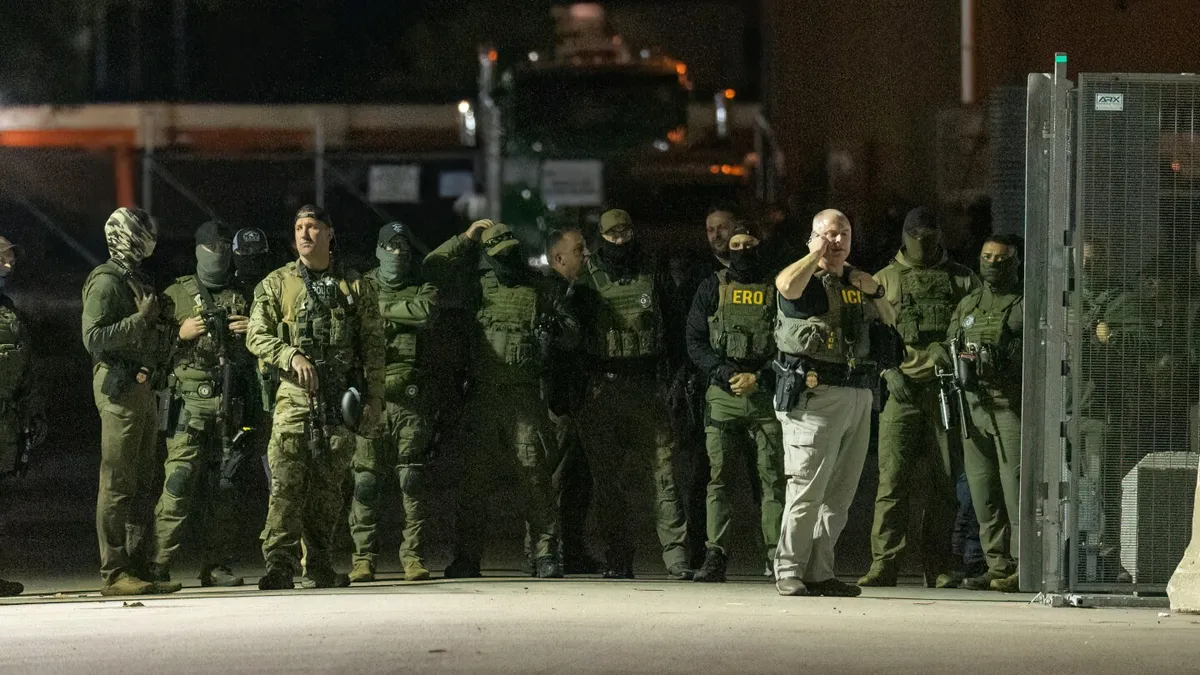
In a landmark ruling, U.S. District Judge Sara Ellis mandated that federal immigration officers operating in the Chicago area must wear body cameras. This decision comes in response to alarming incidents involving tear gas and other aggressive tactics used against protesters during the immigration enforcement actions of the Trump administration. Judge Ellis expressed her surprise at the violent clashes observed on television, stating, “I live in Chicago if folks haven’t noticed, and I’m not blind, right?”
Community opposition to the U.S. Immigration and Customs Enforcement (ICE) has significantly increased in Chicago, the third-largest city in the United States. Local neighborhood groups have been actively monitoring ICE activities, documenting incidents involving immigration agents. Since September, more than 1,000 immigrants have been arrested, prompting heightened vigilance among community members.
In a related development, the Trump administration's attempt to deploy National Guard troops to assist with immigration enforcement was blocked last week by another judge. This series of legal actions reflects the growing scrutiny over ICE practices and the push for greater accountability.
Judge Ellis previously ordered that ICE agents in the region must visibly wear badges and prohibited the use of certain riot control measures against peaceful protesters and journalists. Expressing her concerns about compliance with her orders, she stated, “I’m having concerns about my order being followed.” To enhance oversight, she specified that all agents involved in Operation Midway Blitz, the governmental initiative for immigration enforcement, must have body-worn cameras activated during operations.
While the U.S. Justice Department attorney, Sean Skedzielewski, pointed to “one-sided and selectively edited media reports” as part of the problem, he also indicated that the immediate distribution of body cameras might not be feasible. In response, Judge Ellis acknowledged this limitation, stating, “I understand that. I would not be expecting agents to wear body-worn cameras they do not have,” and suggested that the logistics could be arranged at a later date.
Moreover, she has summoned the field director overseeing the enforcement operation to appear in court on Monday, highlighting the seriousness of the situation.
In 2024, ICE began implementing a program to deploy approximately 1,600 body cameras to agents working within Enforcement and Removal Operations. Initially, these cameras were distributed to agents in various cities, including Baltimore, Philadelphia, Washington D.C., Buffalo, New York, and Detroit. This move is part of a broader trend within the Homeland Security Department, where some agencies mandate the use of body cameras by their officers. Notably, U.S. Customs and Border Protection has released body camera footage in instances where force was applied by its agents.
As the situation continues to evolve, the requirement for body cameras on federal immigration officers in Chicago represents a critical step towards increased transparency and accountability in immigration enforcement practices.